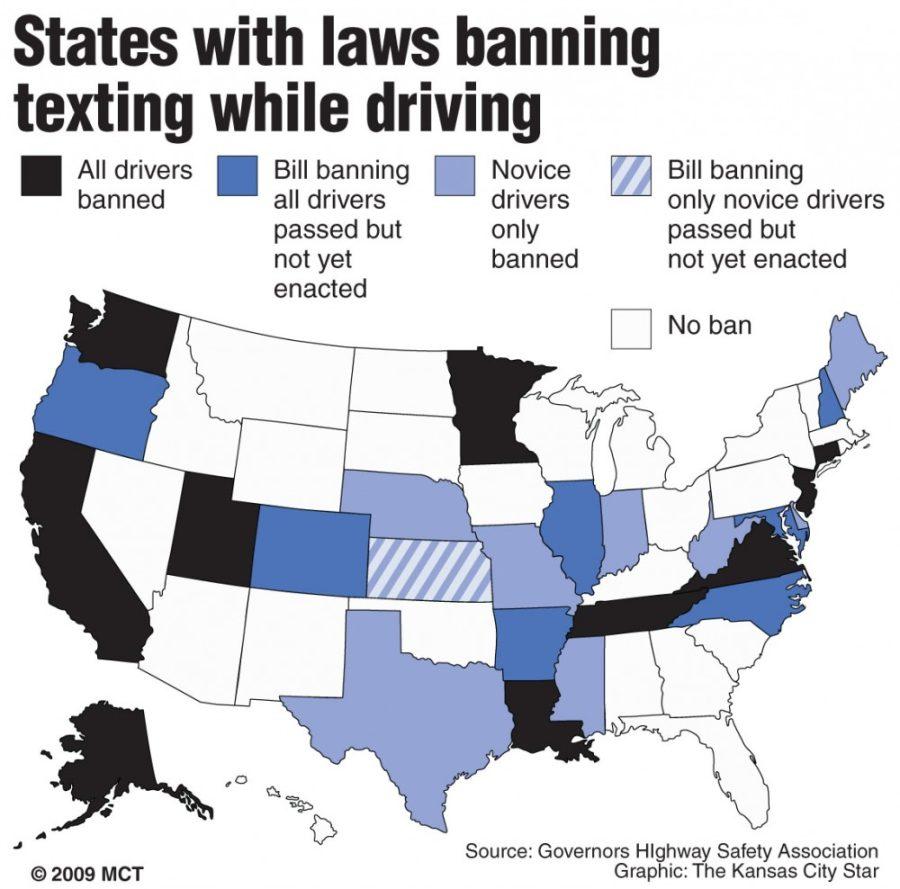Lander, who owns a
“”The second time one of our drivers rear-ended somebody while talking on the phone, I put the kibosh on that,”” said Lander, who has eight trucks roaming the city on the typical day.
Lander is hardly alone in his conviction that texting and driving don’t mix.
Research, including a recent study the
For starters, it banned all federal employees — that’s about 4.5 million people, including the military — from texting and driving while doing government business or using government phones. The order defines texting to include sending or reading messages, as well as things like typing an address into a GPS device.
But the order also instructs government agencies to “”encourage”” contractors and subcontractors to follow the government’s lead.
“”We’ll see the trickle-down effect after those agencies start to put that into their contracts,”” said
Already there has been a significant movement locally and nationally by companies that essentially have decided lawmakers haven’t done enough to curtail what studies have shown to be a hazardous activity. And it’s a problem that’s not likely to go away on its own, considering the surging popularity of text messaging: Some 4 billion messages were sent daily during the first half of 2009 — nearly double the rate in 2008 — according to
Thus far, 18 states have banned texting by all drivers, according to the
With so many other states taking a hands-off approach, businesses large and small are being forced to consider internal policies to protect themselves — should any of their employees be involved in a texting-related accident.
“”It really is a public safety issue rather than a corporate safety issue,”” said
Last week,
“”We wanted to lead by example,”” said
It’s something that many companies have done, or are considering doing, for a couple of reasons. The obvious one is the protection from lawsuits. But companies also are concerned about the welfare of workers. In much the same way a company might encourage employees not to smoke, they want their workers to avoid doing dangerous activities.
It was a story about a fatal accident involving a texting teenager that prompted
“”It seemed like we were being too bossy. But then people realized it was about safety first,”” Chisom said.
While legal experts say there’s little downside to enacting a texting ban, some companies have a stronger incentive than others. A firm with dozens of delivery trucks, for example, will have more reason to worry than one whose employees seldom leave the office.
“”Any company of significant size or with drivers on the road, they’d be foolish not to,”” said
Of course, sometimes you can look a little funny, even when you do.
That’s what
Said Knoll, “”Two or three times a month, I’ll get a call from someone saying ‘Did you know your driver is just sitting in my driveway, typing on his phone?'””
———
(c) 2009, St. Louis Post-Dispatch.
Visit the
Distributed by McClatchy-Tribune Information Services.
—————
GRAPHIC (from MCT Graphics, 202-383-6064): texting
ARCHIVE GRAPHIC on MCT Direct (from MCT Graphics, 202-383-6064): texting









